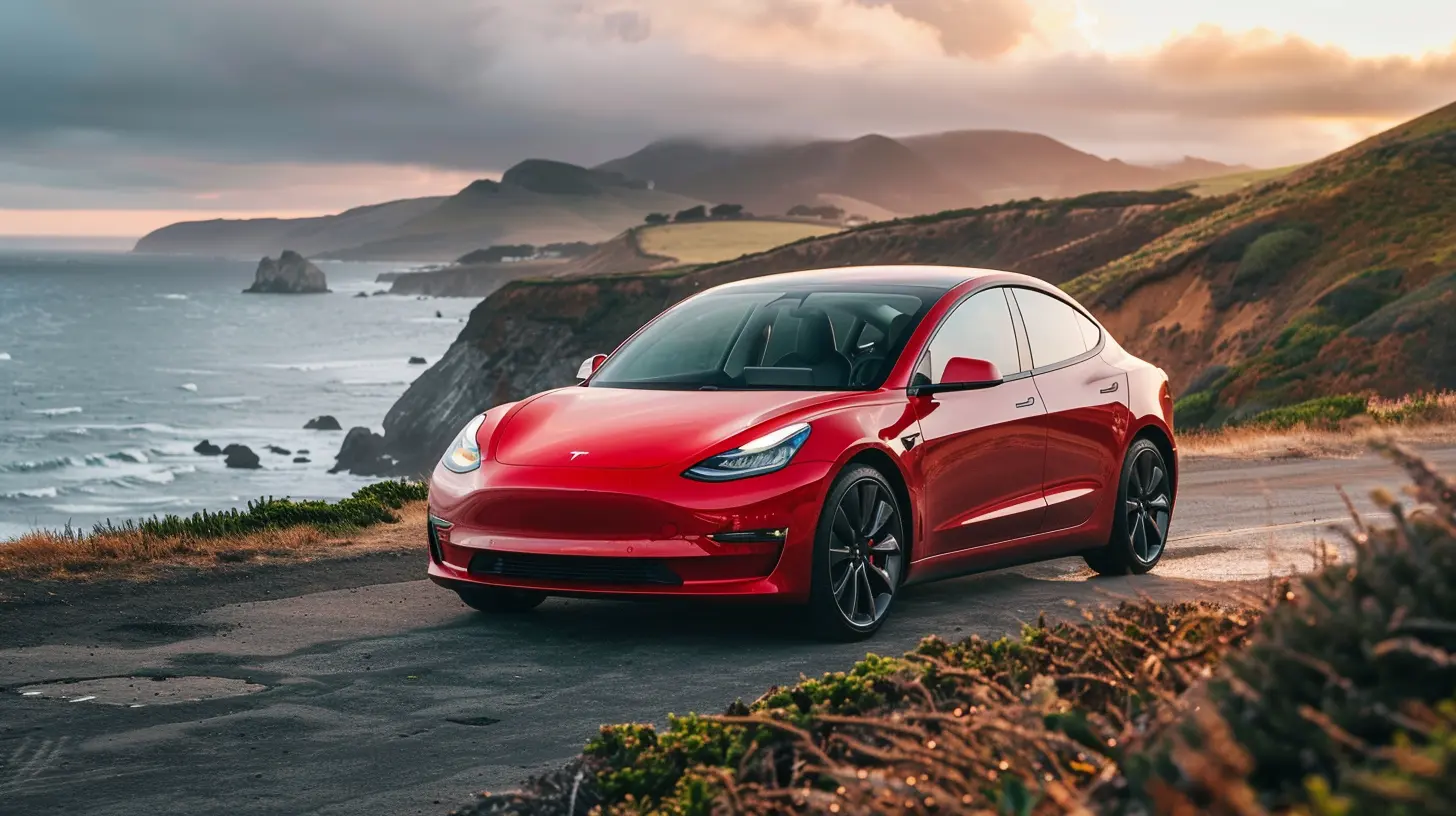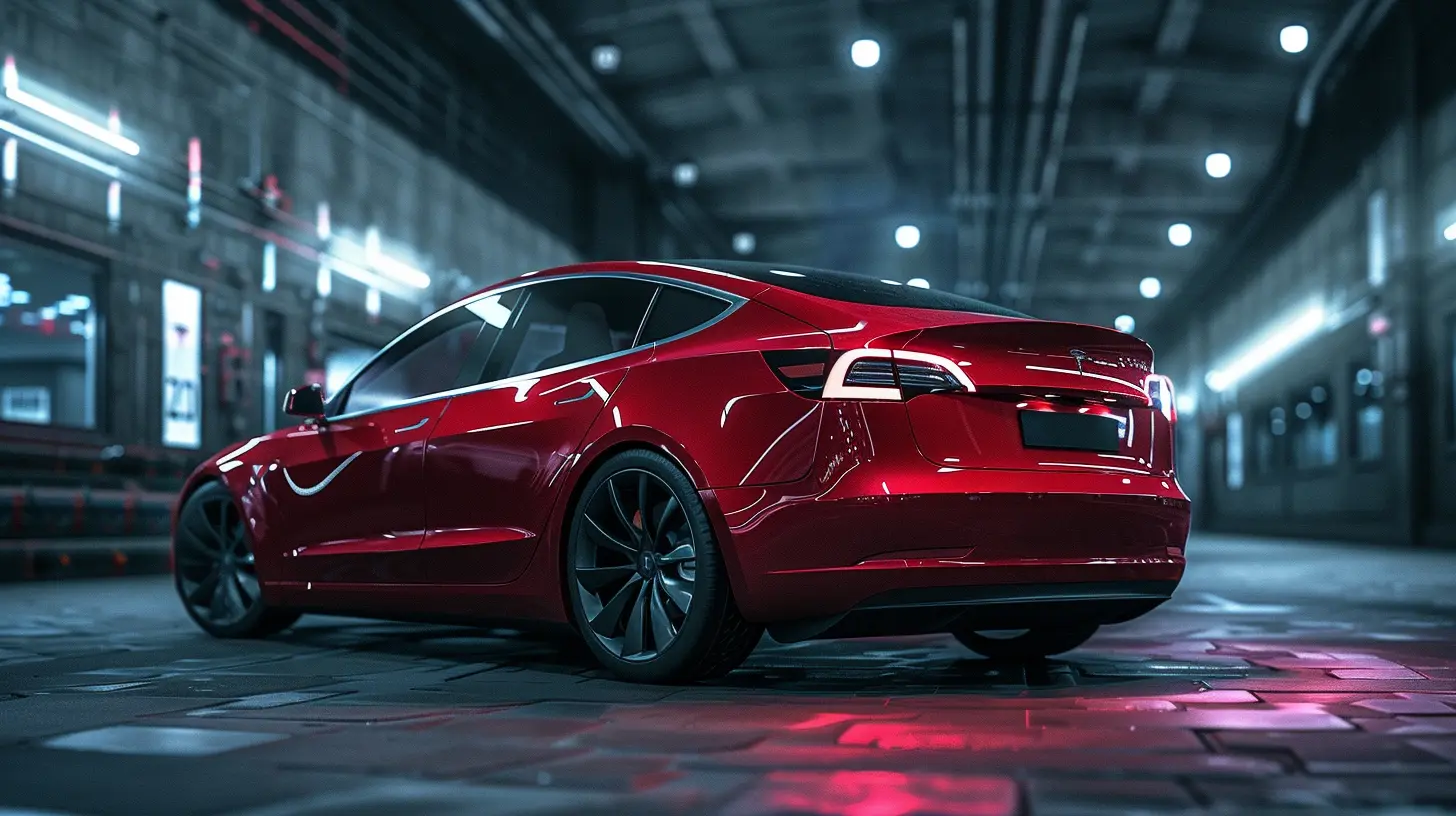24 April 2025
Electric cars (EVs) are often hailed as the future of transportation, promising a cleaner, greener world. But how eco-friendly are they really? Are they the saviors of our planet or just another cleverly marketed trend? Let’s take a deep dive into the world of EVs and uncover the truth behind their environmental impact.

The Green Promise of Electric Cars
At first glance, EVs seem like a no-brainer when it comes to sustainability. Unlike their gas-guzzling counterparts, they produce zero tailpipe emissions. That means no harmful carbon dioxide (CO₂), no nitrogen oxides (NOx), and no particulate matter polluting our air. Sounds perfect, right?Well, not so fast. While EVs are certainly cleaner on the road, their overall environmental impact depends on various factors, from battery production to electricity sources. 
The Hidden Environmental Cost of EV Batteries
Batteries are the heart and soul of electric cars, but they also come with some serious baggage. Let’s break it down.Mining for Rare Earth Metals
EV batteries rely on materials like lithium, cobalt, and nickel. Unfortunately, mining these metals is anything but eco-friendly. It involves:- Massive energy consumption – Extracting lithium from the earth requires large amounts of water and energy.
- Habitat destruction – Mining operations can devastate local ecosystems, harming wildlife and plant life.
- Ethical concerns – Cobalt mining, particularly in the Democratic Republic of Congo, has been linked to human rights abuses and child labor.
So while your EV might not emit exhaust fumes, the production of its battery leaves a significant environmental footprint.
Battery Manufacturing Emissions
Did you know? Producing an EV battery releases more CO₂ than manufacturing a traditional car engine. Shocking, right? Studies suggest that EV production emissions can be 1.5 to 2 times higher than conventional vehicles.However, here’s the silver lining: Once an EV is on the road, it gradually offsets these emissions by producing zero tailpipe pollution. Over time, it becomes cleaner than a gasoline-powered car. 
The Role of Electricity Sources
EVs are only as green as the electricity used to charge them. If your power comes from coal-fired plants, your "clean" ride might not be all that clean. Let’s break it down.Fossil Fuels vs. Renewable Energy
- Coal or natural gas-powered grids – Charging an EV with electricity generated from fossil fuels still contributes to carbon emissions.- Renewable energy sources – If your electricity comes from wind, solar, or hydroelectric power, your EV suddenly becomes a much greener choice.
The good news? Many countries are shifting toward cleaner energy, meaning EVs will only become more sustainable over time.
Energy Efficiency: EVs vs. Gasoline Cars
Despite concerns over electricity sources, EVs are generally more energy-efficient than their gas-powered counterparts. A gasoline engine converts only about 20-30% of its fuel into actual motion, while an electric motor boasts efficiency rates of 70-90%. That’s a significant boost in sustainability.
What Happens When EV Batteries Die?
One of the biggest questions around EVs is: What do we do with old batteries?Battery Recycling and Second Life Uses
Fortunately, EV batteries don’t have to go straight to the landfill. Here are a few ways they can be repurposed:- Recycling – Companies are developing innovative ways to recover valuable materials from used EV batteries.
- Second-life applications – Even when their capacity drops, used EV batteries can still be used for energy storage in homes or businesses.
However, battery waste remains a challenge. Without proper recycling infrastructure, EVs could leave behind a mountain of toxic waste.
The Bigger Picture: Are EVs Really Better for the Environment?
The short answer? Yes, but with some caveats.While EVs aren’t perfect, they still offer a significant environmental advantage over gasoline cars, especially in the long run. Here’s why:
- No exhaust emissions – This reduces air pollution, improving public health.
- Greater energy efficiency – They use electricity more effectively than gas-powered vehicles use fossil fuels.
- Continuous improvements – Advances in battery technology, renewable energy adoption, and recycling solutions are making EVs greener every day.
But Should You Buy One?
If you care about reducing your carbon footprint, an EV is generally the better choice. However, factors like battery production and electricity sources still play a role.Want to be an EV eco-warrior? Here’s what you can do:
✔️ Choose EV models with sustainable battery sourcing.
✔️ Charge your EV using renewable energy whenever possible.
✔️ Support companies investing in battery recycling and ethical mining practices.
Conclusion: The Road Ahead for EVs
Electric cars aren’t a perfect solution, but they are a step in the right direction toward a cleaner, greener future. While challenges exist—like battery production and recycling—the long-term benefits outweigh the drawbacks.Technology is evolving, and with continued innovation, EVs will only become more sustainable. So, while they may not be an environmental "silver bullet", they’re undoubtedly a better alternative to traditional gas-guzzlers.
What do you think? Are you ready to make the switch to an electric ride?




Rina Fry
This article raises important questions about the environmental impact of electric cars. I'm curious to see how factors like battery production and energy sources compare to traditional vehicles. It's essential to examine the entire lifecycle for a fair assessment!
April 24, 2025 at 12:15 PM